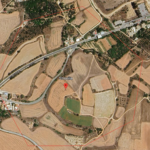As part of the Building Near Futures course, I was introduced to the concept of Futures Literacy. A capability to ‘use-the-future’ to better understand the present (Miller, 2018). This idea has significantly shaped how I think about my research on the living heritage of Strovilia, which is caught in political limbo. While my project is rooted in memory and preservation, engaging with Futures Literacy has opened up new ways to think about documentation as an anticipatory act.
In Strovilia, where little academic or historical record exists, my fieldwork relies heavily on interviews and memory mapping. Initially, these methods were about recovering the past. But the lens of Futures Literacy reframes them as future-oriented practices, tools that not only preserve heritage but also enable communities to reimagine their identity amidst loss and uncertainty. By surfacing narratives, sounds, and sensory memories, participants begin to reconstruct meanings that extend into the future. This aligns with the idea of anticipation for emergence (Miller, 2018), which emphasizes imagining futures not to predict or plan, but to explore new meanings. In this sense, cultural resilience is not just about preservation, but about the creative capacity to project memory forward despite fragmentation.
This shift, from memory as archive to memory as foresight, has influenced how I designed my interviews, and how I understand the political weight of storytelling. Futures Literacy offers a powerful framework for heritage in contested spaces, reminding us that the past doesn’t just fade, it evolves, through imagination into something enduring.
C.C.
_____________
Miller, R. (ed.) (2018) Transforming the Future: Anticipation in the 21st Century. Paris: UNESCO/Routledge.


